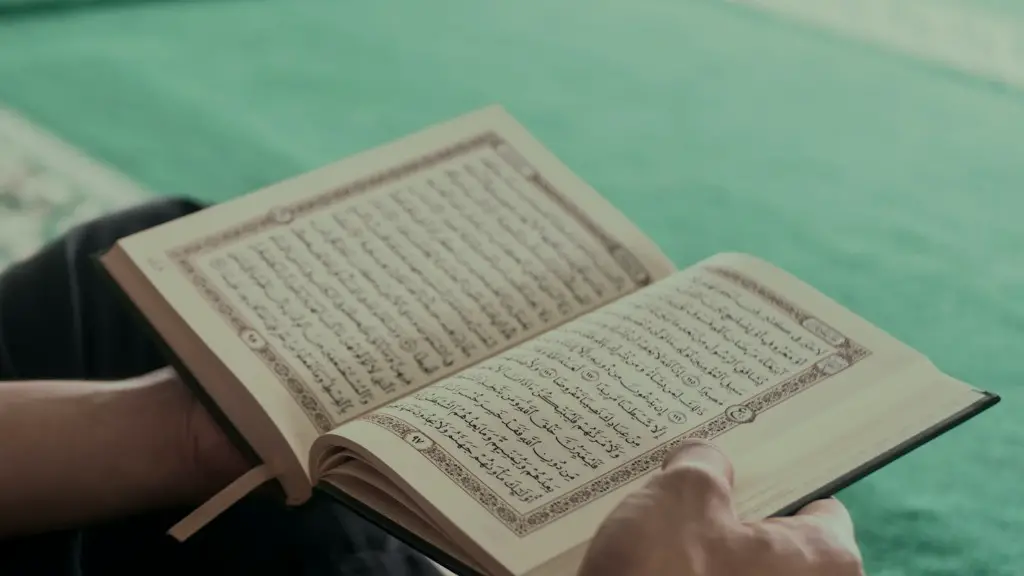History of Easter Sunday
Easter Sunday is the Christian celebration of the Resurrection of Jesus Christ, believed to have been resurrected three days after his death. The holiday is held annually on the first Sunday of the Christian calendar, usually occurring in late March or early April. Easter Sunday is the greatest feast day of the Christian year, commemorating the triumph of Jesus Christ over death. Easter is observed in many cultures around the world, with traditions that range from the chocolate-filled Easter egg hunt to huge festivities across countries and religions.
The celebration of Easter traces its origins to pre-Christian pagan festivals of spring. The Christian celebration of Easter is closely connected to the Jewish festival Passover, as the story of Passover includes elements of the Easter story. Passover was chosen as the Christian day of Resurrection, as it represented the day when Jesus arose from death. Easter is celebrated on the first Sunday after Passover.
The resurrection of Jesus is the core of Christianity and Easter symbolises that. It’s a celebration of life, hope and faith, signifying the ultimate victory of good over evil. It is a celebration of Jesus’ ultimate sacrifice for us and for our salvation, a reminder of eternal life and hope. Easter also marks the end of Lent, the 40-day period of fasting and prayer in preparation for the festival. It is a time of redemption and forgiveness, a time to reflect on our lives and ask for God’s grace and mercy.
Easter Sunday Rituals & Traditions
One of the most recognizable Easter traditions is dyeing and decorating eggs, which is believed to have originated with ancient Egyptians and Persians. Many churches hold egg hunts and chocolates in Easter baskets are often given as gifts. In some areas, people throw large potluck dinners in churches and homes. Easter celebrations also include attending Mass, singing hymns and participating in religious services. In many countries, bonfires are lit in the evening to symbolise the Resurrection of Jesus.
The Easter Bunny, a symbol of fertility and rebirth, is an important part of Easter traditions. It is believed that the bunny delivers eggs to children, signifying the renewal of life during the Spring swason. In some countries, the Easter Bunny will leave eggs or other gifts in the children’s shoes or on their doorsteps. In the United States, eggs are hidden in the garden or other outdoor area and children then go on an egg hunt to try and find them.
The Easter holiday is also marked by celebrations of Jesus’ resurrection, such as processions and parades. Devout Christians celebrate Easter by attending religious services and engaging in prayer, meditation and acts of kindness. Many people also send cards and Easter baskets filled with treats and gifts to family and friends.
Meaning Of Easter Sunday In Christianity
Easter is more than an egg hunt and a chocolate bunny. It is a spiritual experience that brings many people closer to God. For Christians, Easter is the celebration of the death and resurrection of Jesus Christ. The resurrection symbolises God’s saving power and reminds believers of His unending love. The resurrection brings new hope and faith to all believers, as it represents the victory of God over death. It is a time for renewal and rejoicing, a reminder that God works all things for the good of His people, despite the suffering and struggles of life.
The week before Easter Sunday is known as Holy Week, and worship services take place throughout this week. On Good Friday, Christians remember and commemorate Jesus’ death on the cross. On Easter Sunday, Christians celebrate the fact that Jesus rose from the dead, becoming our living Lord and Savior. During this time of the year, churches are decorated with lilies, a traditional symbol of the resurrection and eternal life.
Symbols of Easter Sunday
The symbols and customs associated with Easter Sunday are symbols of joy, renewal and hope. The most common symbols, such as the Easter egg and the Easter bunny, are symbols of new life and rebirth. The egg is a symbol of fertility and new life, while the bunny is a symbol of abundance, fertility and prosperity. Both of these symbols have been present in pagan cultures and religions for centuries, and have been adopted by Christianity to represent the death and resurrection of Jesus.
The paschal candle is also an important symbol of Easter, as it signifies the light of Jesus. This large candle is decorated with red and white stripes and is lit each year during Easter Week as a symbol of Jesus’ resurrection. Other popular symbols of Easter include the lily, which is a symbol of purity and the cross, which is a reminder of Jesus’ sacrifice. Easter cards and other decorations often feature other symbols that are rooted in the resurrection. These symbols are important reminders of Jesus’ sacrifice and why Easter is such a special day.
Significance of Easter Sunday
Easter Sunday is a celebration of the greatest gift of all—Jesus’ sacrifice for us. It is a reminder of how true love can conquer death and grant us hope for a new beginning. Easter is also a reminder of the promise of eternal life and resurrection. Through His death and resurrection, Jesus offered us the gift of forgiveness and opportunity for redemption. It is a time to reflect on the things we have done wrong, and to ask for forgiveness and mercy.
Easter Sunday is a celebration of the greatest miracle that has ever happened—the triumph of Jesus over death. It is a reminder of the power of God’s love and of the hope that can be found in faith. Therefore, it is a time for believers to reflect on the past, rejoice in the present and look forward to the future with greater faith and love than ever before.
Religious Observances Of Easter Sunday
Religious observances on Easter Sunday typically include attending worship services and participating in religious rituals, such as the Passion of Christ, or the reading of the resurrection story from the Bible. Special services are held in most churches, which include the singing of Easter hymns. Churches will also often decorate the inside and outside with symbols of the resurrection, such as crosses, lilies and Easter eggs. Churches will also often hold a sunrise service, where people gather together to watch the sun rise, symbolising the dawn of a new day.
Easter is a time for many to practice acts of kindness, such as increasing charitable donations to those in need. Many churches will also host special meals and gatherings, which brings the community together to celebrate in a meaningful way. Altogether, Easter is a truly special time, and a chance to remember why Jesus died so that we could have a new life.
Easter Sunday Customs & Celebrations
Easter is celebrated in many ways, but one of the most popular ways to celebrate is with a big family feast. Dishes that are served at Easter dinners often vary, depending on the culture, but some of the most popular dishes include roasted lamb, ham and roasted vegetables. Other common dishes include deviled eggs, finger foods and classic desserts like hot cross buns, known for their cross-shaped markings.
Easter is also accompanied by a variety of joyous traditions, such as decorating eggs or making an Easter bonnet. In some countries, egg rolling is a common activity, where hard-boiled eggs are rolled down a hill for a competition. Church services are often filled with vibrant music, with classic hymns such as “Christ the Lord is Risen Today” being sung during the celebration. Other countries may also have traditional Easter parades and plays, where actors and performers wear colorful costumes and enact the story of the resurrection, helping to bring the classic story to life.
Easter Sunday is a day of celebrations and joyous traditions, but it is also a day of renewal. It is a reminder of the eternal hope that can be found in faith, and of God’s unending love, mercy and compassion.


